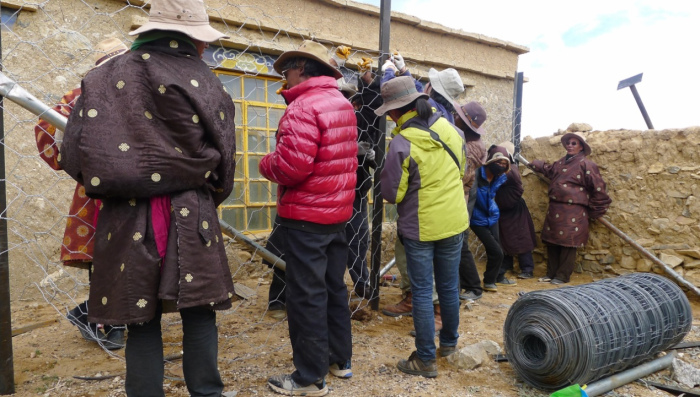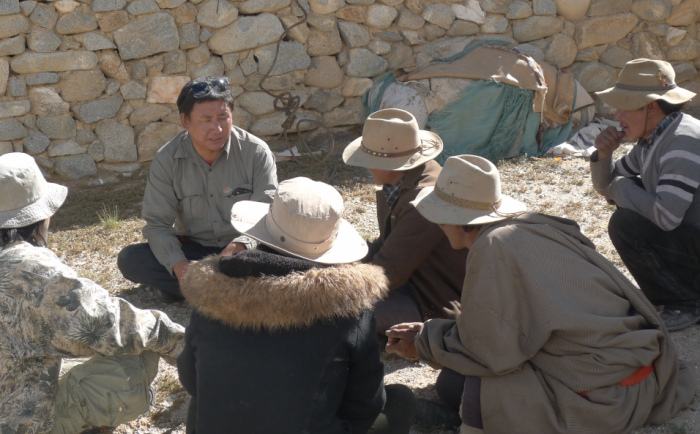It was late August, and the weather already turned chilly on the grasslands of Changtang. In our project site we were guiding local villagers on how to build up fences around their sheepfolds and homes. This measure was necessary following the increasing records of human-wildlife conflict threatening the survival of wild bears in the region.
We decided to develop a set of community incentive agreements in the identified pilot project sites as we believed these would ensure longer term sustainability of the bear-proof fence structures. As WCS, we provided building materials and technical guidance. Meanwhile beneficiaries contributed with manpower and committed to provide adequate maintenance for the whole duration of the agreement. We also encouraged villagers to keep track of the activities of brown bears, wild yaks and Tibetan antelopes, three of the most ‘disturbing’ species for the local population and economy. With this project and together with local inhabitants we would build a better understanding of the dynamics of the conflict, and enhance public awareness about ‘soft’ ways to protect herders’ benefits without hurting endemic wildlife.
Because only a few of our staff are able to speak Tibetan, and our translator had to take a few days off for personal reasons, we faced the challenge of guiding local herders effectively. Determined to reach our objectives and have these fences properly set up, we resorted to gestures and mimics. For example we tapped their shoulder to attract their attention, and pointed out with our hands the right direction where to plant the poles. Most technical problems could be clearly communicated and effectively solved just by using body language. This process, though, was soon going to make us feel exhausted.
There were a few lazy people among the team assigned to this task by the village head. They were hanging around or standing by with a lost facial expression. We were committed to maintain a fair and positive work atmosphere among the whole team. Therefore we vividly attracted their attention, encouraging them to contribute. It was very important calling them by name for us to succeed them, which is not only effective but also universally considered a form of respect.

WCS volunteers instructing villagers on how to fence a house. ©WCS/纪冀蜀
Besides body language, the other secret for getting along successfully with Tibetan herdsmen is to smile. Smiling is the simplest yet most effective way to overcome any language barrier and effectively communicate with people. It worked great! Every time we met a villager, we would say ‘tashi delek’ (which is the standard Tibetan greeting) and keep smiling. Villagers would always share back a smile and welcome us friendly. We generously distributed smiles each time they did a good job, came up with a brilliant idea or just inadvertently made an eye-contact with us during the construction operations. In a word, we were able to establish a closer relationship every time we expressed feelings and opened our hearts to our partners. A powerful team always depends on sincere hearts.

Taking a break and chatting together. ©WCS volunteer/唐鸽
We managed to have all the fences built according to the schedule, and villagers soon became very familiar with us, so much as to start long conversations in Tibetan about topics they were interested in. Indeed, the language barrier was not removed yet, and we could only understand a small share of what they were saying. Nonetheless we had good reasons to be satisfied. Both fences and mutual trust were successfully built, ensuring better protection to houses, sheepfolds, and wildlife alike.
We had also learned an important lesson with this experience: respect, sincerity, kindness and happiness are universal feelings, and can be universally conveyed regardless to the language or ethnicity.
Written by: Bian Xiaoxing(卞晓星)